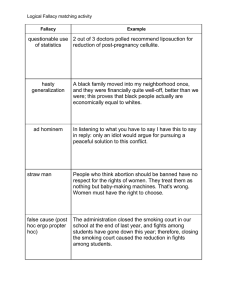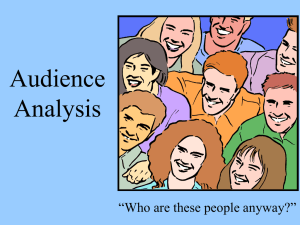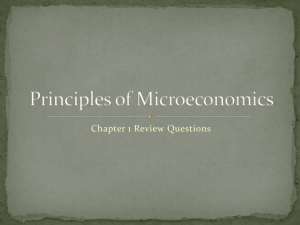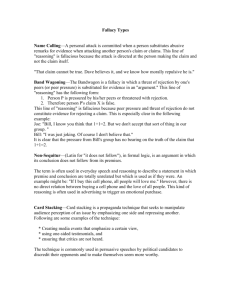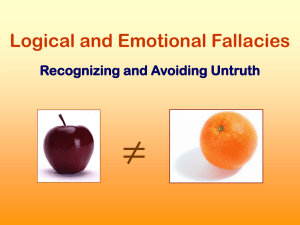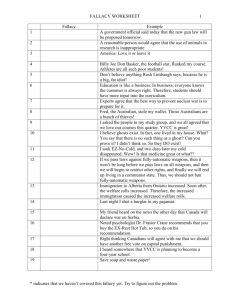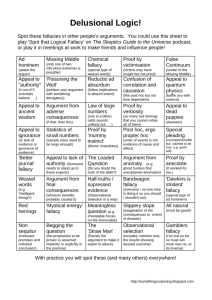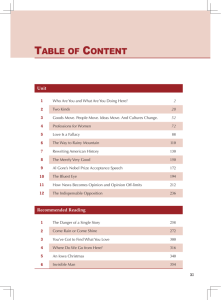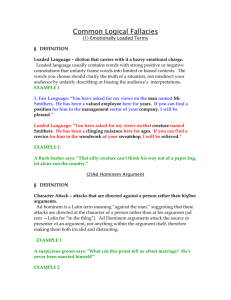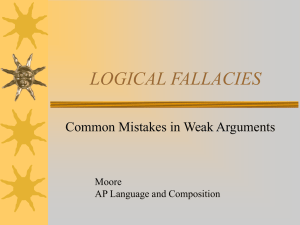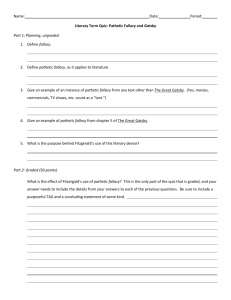Inductive Fallacies - Aurora of Paradise
advertisement
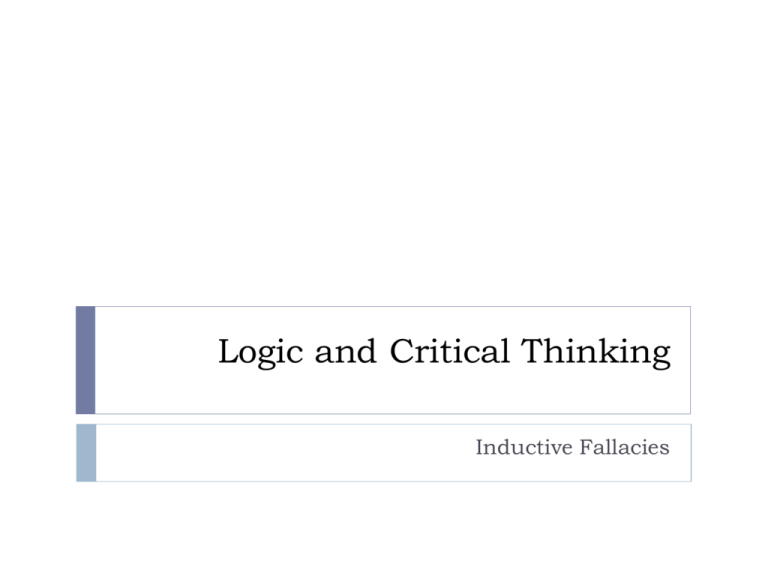
Logic and Critical Thinking Inductive Fallacies 2 criteria of a good sample Is the sample large enough? Is it representative? 2 criteria of a good sample Is the sample large enough? If not, then we have the fallacy of small sample Is it representative? If not, then we have the fallacy of biased sample REASONING BY ANALOGY A has properties x and y B has properties x and y A also has property z B probably has property z as well Fallacy of Questionable Analogy occurs when there is an important difference between the two things being compared. Fallacy of Questionable Statistics occurs when you have a good reason to believe that the statistic is false or at least questionable 1. Faulty Method (e.g. small sample, biased sample, lack of a random sample) 2. You’ve seen a contrary statistic somewhere else 3. The statistic can’t be reliably known Questionable Use of Statistics when the premises contain good statistics, but the conclusion doesn’t follow from those statistical premises. “Three out of every four dentists surveyed recommend X to their patients.” Causal Reasoning effect to cause cause to effect The fallacy of questionable cause occurs when you have a good reason to believe that the cited cause is not the correct one. Post Hoc Fallacy “Post hoc, ergo propter hoc.” After this, therefore because of this. Scientific Method III. Scientific Method 1. define the issue 2. gather evidence 3. form hypothesis 4. test 5. evaluate (3 main options) not looking for verification, but falsification 1. accept 2. reject and revise (In a testing situation, if you reject, the next step is to REVISE) 3. or suspend judgment Hasty Conclusion jumping to a conclusion without enough evidence Small Sample This is a type of hasty conclusion. when the sample is not large enough
